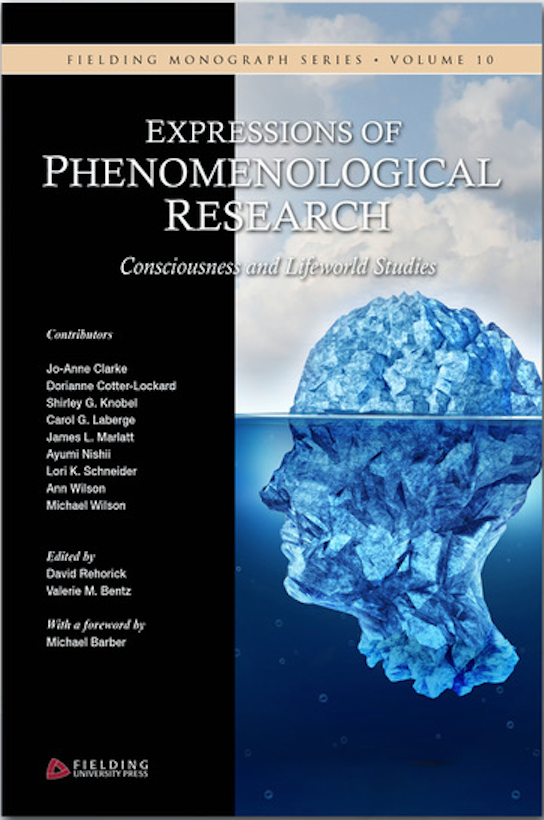
A new publication from Fielding University Press, edited by Daniel Rehorick and Valerie Bentz
Despite its origins at the turn of the 20th century, Edmund Husserl’s idea of “phenomenology” still elicits reactions ranging from perplexity to suspicion. Over the past four decades, phenomenology and hermeneutics have been embraced increasingly by scholars who are not strictly philosophical phenomenologists— including educators, health professionals and social scientists. As such, varying views have arisen as to what really constitutes phenomenological inquiry. This edited collection expands scholarly discussion as to what counts as legitimate phenomenological inquiry, and showcases the unique way that phenomenology has been taught at the Fielding Graduate University. Consciousness and Lifeworld Studies at Fielding arises from the long-standing collaboration of Valerie Bentz and David Rehorick share their knowledge and enthusiasm for phenomenology to more than two decades of doctoral students. Their teaching style is characterized as leregogical, advancing beyond andragogy as the model for adult learning. An analytical review of seventy-six doctoral dissertations reveals three distinct methodological contributions—“phenomenologically-based,” “-oriented,” and “-inspired”— to the study of consciousness and the sociocultural lifeworld. Graduate scholar-practitioners demonstrate the applicability of phenomenology and hermeneutics for their professional practice and personal lives. James Marlatt explores the executive coaching relationship, drawing on concepts from Schutz to Kurt Wolff. Shirley Knobel examines the lifeworld of Nelson Mandela through a deep dive into his personal letters and archived documents. Jo-Anne Clarke uses a Schutzian lifeworld lens to study women as sustainability entrepreneurs. Carol Laberge situates individual experiences of heart attack at the center of the nursing healthcare narrative. Lori Schneider builds upon Heidgger’s conception of place to display the meaning of work, home and life for remote workers. Ayumi Nishii displays how trying to understand Heidegger changed her sense of self and the meaning of servant leadership. Dorianne Cotter-Lockard reveals new understandings from a study of the collaborative relationship within chamber music ensembles. Michael and Ann Wilson generate a creative bridge between phenomenology, hermeneutics, and they way socially innovative community projects for citizens in need can be forged. In the closing Epilogue, Valerie Bentz and David Rehorick identify ten qualities that emerge as characteristic of Fielding educated phenomenologists.